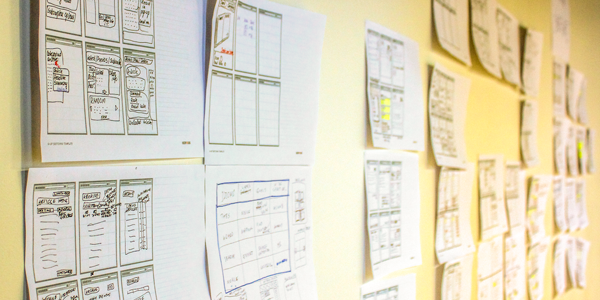
UX newsletter — April 3, 2018

Email not displaying correctly? View it in your browser.
Message from the Editor
Hi {!email}
Since our last newsletter, our team has been beavering away on an improved mobile experience for our web site. We know that most people visit our web site for the articles and reports, so we've tried to make the reading experience on mobile as good as we can. Take a look and let me know what you think.
We've also taken this opportunity to make all of our reports and eBooks free. So if you always wanted a copy of 'ISO 9241 for Beginners', 'The Usability Test Plan Toolkit' or 'Morae for Usability Practioners' but were reluctant to spend £9 on them, get them now. They are only for newsletter subscribers like you. To get the download links, enter your email address on our newsletter sign-up page. Our system will identify you as a subscriber and direct you straight to a page where you can get the eBooks. Here's the link to the newsletter sign-up page.
This month's article addresses an objection to user research that I frequently hear from development teams. I hope you find it useful.
— David Travis

Engaging a representative sample of participants in user research sounds like a good idea but it is flawed. It requires lots of participants, does not work in an agile development environment, stifles innovation and reduces your chances of finding problems in small sample usability tests. When combined with iterative design, theoretical sampling (where theory and data collection move hand in hand) provides a more practical alternative. Read the article in full: Why you don't need a representative sample in your user research

The Design Studio is a wonderful methodology to encourage multidisciplinary design, but in practice teams often create design concepts that aren't grounded in user research. We can bake user research findings into every design concept that emerges by using the context of use (users, goals and environments) as a constraint. As an added bonus, this approach helps teams create many more solutions to a design problem. Read the article in full: What user researchers can bring to the Design Studio Methodology.
What we’re reading

Some interesting UX-related articles that got our attention over the last month:
- 43 ways to find participants for your research study -- and 3 general principles: Quality matters, not quantity. Rigour matters, not speed. Outcome matters, not output.
- Dealing with difficult user research participants, including: participants who should never have been recruited; participants who don’t think aloud properly; participants who don’t want to criticise; participants who are anxious; and "lost souls".
- Do you really know why you do what you do? Every user researcher, interviewer and market researcher should spend 15 mins watching this video.
- Animation tips to improve a prototype's UI micro-interactions.
- Trusting the Design Process: Conduct immersive, ethnographic research; Synthesize the research to arrive at the "big rocks" of innovation; Sketch lots of scenarios; Visualize the designed touchpoints in real artifacts; Test the results with real people.
- Working through design challenges in product design job interviews.
- 10 Tricks to Appear Smart in Meetings.
Like these? Want more? View our posts on Twitter or Facebook.
Upcoming UX training courses in May

This 2-day seminar shows delegates how to get the most from a field visit to a customer location. Find out how to select the right users, when you should observe and when you should ask questions, how to collect observational data and how to analyse it to improve your design. View the full syllabus: Design ethnography: Take control of customer visits and interviews.
In this fun and hands-on training course, you'll practice all the key areas of UX — from interviewing your users through to prototyping and usability testing your designs — while you prepare for and take the exam. View the full syllabus: Foundation Certificate in User Experience.
UX quotation of the month
"A researcher who is keen to please the design team is useless." — Harry Brignull.
Hungry for more?
Read previous newsletters.
Want to receive your own copy of this newsletter?
Join our community of people interested in user experience. Sent monthly. No spam.
|